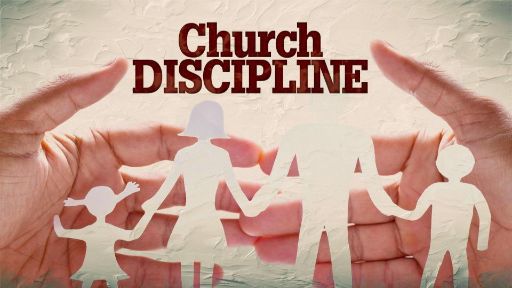-
Damaged Goods Series
Contributed by Jason Jones on Nov 28, 2017 (message contributor)
Summary: Exposition of Jude 12-15
Text: Jude 12-15, Title: Damaged Goods, Date/Place: LSCC, 9/17/06, AM
A. Opening illustration: I hope that there are no postal employees here this morning. As you may guess, living 1300 miles away from family with little children, we send and receive a lot of packages in the mail. And there for a while, it seemed like everything coming our way was destroyed by the time it got here. And of course on the package it is marked “Damaged when Received” in a lame attempt to excuse the Sebago PO for giving us a box that looks like it has been used for target practice. And most of these gifts are not monetarily worth much, so no insurance, but sentimentally they are valuable to us. And many of the items inside look very similar to the box on the outside, destroyed. So they go from the box to the trash can. What a waste!
B. Background to passage: Jude uses some natural illustrations to describe these apostates further. And knowing that false teaching is a danger to the church, we can deduce the effects of their apostasy on the church. This again stress how destructive and dangerous false teaching is to the Church of Jesus Christ. In the five illustrations, the last four form two similar sets of teaching, so we will deal with them together.
C. Main thought: In our text we will see three effects that false teacher/ings can have on the church.
A. An Impure Church (v. 12)
1. First Jude says that these false teachers are blemishes or spots on their love feasts. This word that is used is the same word used to describe coral reefs that lie beneath the surface of the water that cause damage to passing ships. Explain the love feasts—a meal alongside the worship service and the Lord’s Supper. These impure men taking of the Supper unworthily, and making a mockery of communal fellowship, constituted a stain or blemish upon the purity of the church. Purity of the church as a whole is very important to Christ. And this impurity leads to selfishness, and lack of concern for others.
2. 2 Pet 2:13, Eph 5:27, Rev 21:2,
3. Illustration: the opening lines of I kissed Dating Goodbye by Josh Harris, a suit of clothes hanging on a rack by a window. A sign on it read: “Slightly Soiled—Greatly Reduced in Price.” As a result, we go down in spiritual defeat because we have been careless about little sins. After a violent storm one night, a large tree, which over the years had become a stately giant, was found lying across the pathway in a park. Nothing but a splintered stump was left. Closer examination showed that is was rotten at the core because thousands of tiny insects had eaten away at its heart. The weakness of that tree was not brought on by the sudden storm; it began the very moment the first insect nested within its bark
4. This is a reminder to believers that the purity of the church is important, and a responsibility of the entire congregation to maintain. There is a sense of congregational accountability to Christ. Your sin doesn’t just affect you, it affects others around you, and it affects your church. Your sin may cause the blessing of God to be withheld from LSCC. This is why revivals happen when individuals from within a group begin to confess their sin before God. This is not just the responsibility of the leadership to assess or promote, but of everyone. Many times you will notice small faults and inconsistencies in the people that you are closest to at LSCC before I will. This is also a reminder of the seriousness of sin. Consequences of sin vary, but the heinousness of sin is always that it is infinitely offensive to God. This is why the Lord’s Supper is usually preceded with a time of self-examination. And you are really expected to look through your life and take stock, and ask God to cleanse you afresh as you repent from sin. This is also why we take care of church discipline concerns at the Supper.
B. An Impoverished Church (v. 12)
1. The next two examples Jude gives are clouds with no water and trees with no fruit. Especially in arid climates with dry and wet seasons like the Middle East, rain and water always symbolizes life. And fruit trees again indicate a promise of a harvest of life-sustaining food. But Jude describes these apostates as full of much promise, but lacking in delivery. These false teachers will actually block the living water, and spiritual food from a church, thus starving it to death. Blocking sun for warmth, and giving shelter to snakes, rats, and other such hindrances to health and life

 Sermon Central
Sermon Central



